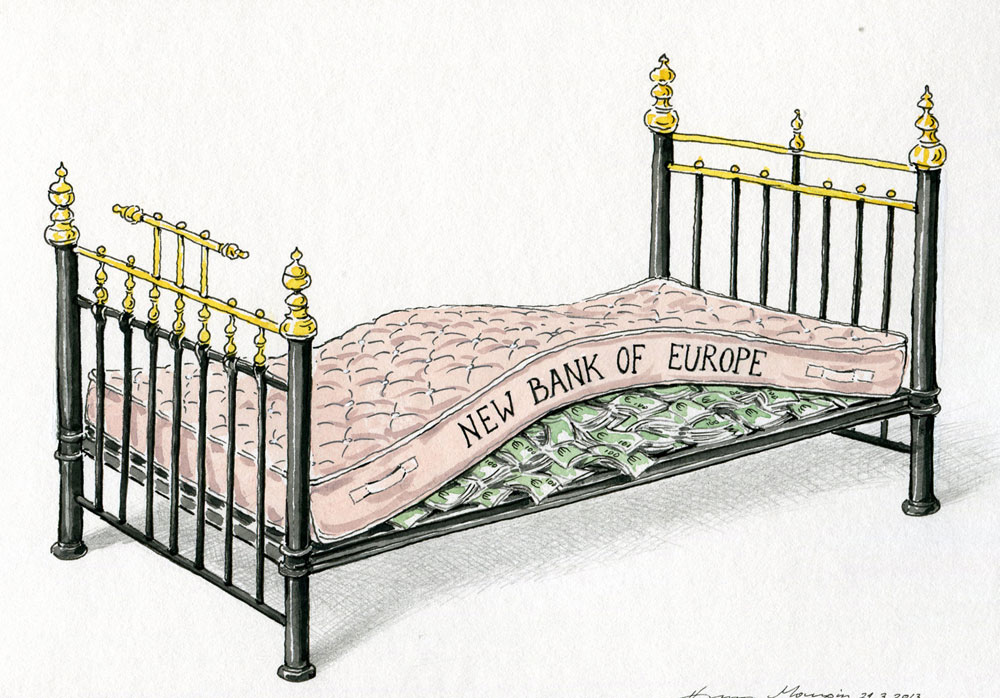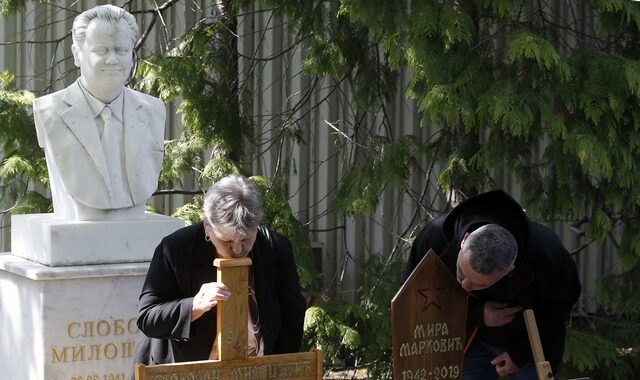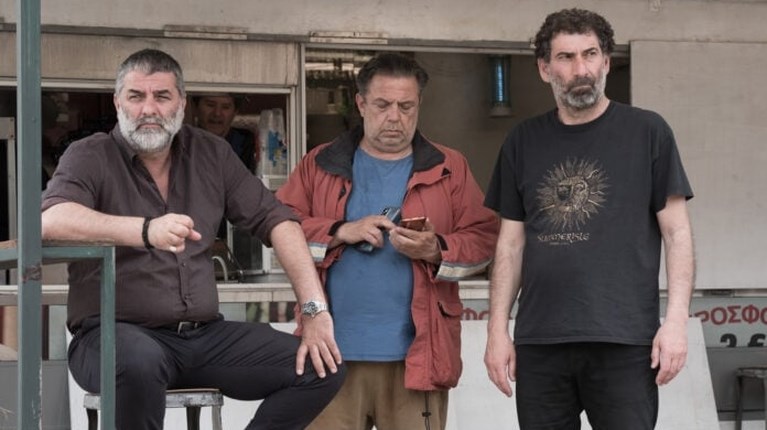ΠΕΜΠΤΗ 26 ΦΕΒΡΟΥΑΡΙΟΥ 2015
Με πρώτο θέμα την οικονομική κατάσταση της Ελλάδας, ο ξένος τύπος σχολιάζει την οικονομική στενότητα στην οποία βρίσκεται η Ελλάδα απ’τις αρχές του 2015. Ας δούμε πιο αναλυτικά το σχολιασμό των ξένων εντύπων.
THE GUARDIAN
Για τη φυγή χρημάτων απ’την Ελλάδα, απ’το Γενάρη του 2015 και μετά, αναφέρεται η εφημερίδα «The Guardian». Πιο αναλυτικά το δημοσίευμα έχει ως εξής: «Anxious savers withdrew €12bn (£8.8bn) from Greece’s banks in January, underlining the desperate challenge facing Athens’ anti-austerity ministers during last week’s debt talks.
Figures for February are not yet available from the European Central Bank, but the exodus is likely to have continued after the Syriza-led coalition came to power, and battled to secure a four-month extension on its €172bn bailout loan.
With the ECB offering only limited support to Greek banks under the emergency liquidity assistance (ELA) programme, the scale of the capital flight suggests Athens had to strike a deal last week to halt a bank run that could have endangered the country’s financial system.
Its finance minister, Yanis Varoufakis, who led last week’s Brussels negotiations, eventually secured an agreement in principle on extending emergency funding for Greece. On Thursday, he boasted that deposits had since flooded back into the country.
“There was a deposit flight back into the Greek banking sector,” Varoufakis told Bloomberg TV. “It’s a question of direction. Once you turn the tide, you hope.” He added that €700m was deposited at Greek banks on Tuesday alone.
The extension deal on Greece’s loan requires the government to submit a list of economic reforms it plans to carry out. It has yet to be formally approved by the German and Greek parliaments, but is expected to pass.
But with some leftwing Syriza parliamentarians expressing doubts about the compromises involved and with the German finance minister, Wolfgang Schäuble, taking a tough line, Greece still faces tough challenges in the coming months.
He said on Wednesday: “It’s not easy for Greece, but it also isn’t easy for others. Nobody can live permanently beyond their means.».
NEW YORK TIMES
Για τις κινήσεις της ελληνικής κυβέρνησης σχετικά με τις οικονομικές συμφωνίες αναφέρονται οι «New York Times» σε σχετικό δημοσίευμά τους: «ROME — For the past month, as Greece once again emerged as a threat to the global economy, a new generation of populist Greek leaders vowed to shatter Europe’s austerity politics in what threatened to become an unbridgeable divide with the European establishment, especially Germany. There were insults, predictions of calamity and accusations of double-dealing and deceit.
Until Tuesday, when, with surprising ease, Greece and Europe suddenly made nice -at least for the moment.
Eurozone finance ministers and other creditors agreed to extend the Greek bailout program for another four months, with caveats, after signing off on a reform plan hurriedly put forward by the Greek government. A tough confrontation that symbolized the polarized politics and deep economic divisions of Europe had taken a Kumbaya pause.
It will probably not last long, and the fact that both sides are claiming victory underscores the fuzziness and fragility of the new agreement. Tuesday’s accord does not resolve Greece’s dire economic situation and pushes many of the major problems down the road. Nor has this latest Greek crisis forced Europe’s leaders to address the fundamental problems of the economic and political structure of the eurozone.
Yet the political dynamic has undeniably changed. The new Greek prime minister, Alexis Tsipras, and his leftist Syriza party were elected last month as insurgents, promising to end austerity in Greece and inspire a broader backlash across Europe. But to avoid a banking crisis and keep the loan money flowing, Mr. Tsipras discarded his confrontational stance and is now committed to pushing through structural reforms and tougher tax collections: positions long advocated by European creditors.
In turn, Mr. Tsipras is claiming a measure of victory, symbolic and tangible, by forcing Europe to revise, if modestly, the terms of the bailout program and winning some commitments to address the “humanitarian crisis” created by austerity. His close advisers say the bigger goal is to deliver quickly on reforms to earn credibility so the government can negotiate a new bailout agreement in June, with terms more favorable for Greece.
“We should always keep in mind that this program is for a short period of four months,” said a senior adviser to Mr. Tsipras, who agreed to speak only on the condition of anonymity to discuss internal policy. “The government has been elected for four years to carry out its program.”
Greece has endured years of hardship and high unemployment, with many Greeks blaming the belt-tightening requirements attached to the country’s 245-billion-euro bailout for the country’s economic collapse. Mr. Tsipras must now balance the demands of the country’s European creditors -the European Commission, the European Central Bank and the International Monetary Fund, known as the troika -with the expectations of voters who rallied to his promises to rehire thousands of fired public workers and pursue other leftist, pro-growth policies.
Some analysts note that the Greek leftists and the European creditors have fairly broad areas where they can agree, especially in cracking down on tax evasion by the wealthy and on corruption. Syriza was elected without the support of many of Greece’s most powerful business networks, and the party had vowed before the elections to close loopholes and shift the tax burden away from the poor toward the rich. Unlike past Greek governments, which often had ties to these elites, Syriza is better positioned to make real change, analysts say.
“The most important challenge, a make-it-or-break-it thing, is their ability to deliver on tax evasion, corruption and smuggling of tobacco and oil,” said George Pagoulatos, a political analyst and professor at Athens University. “If they manage to make a difference on that, they will be able to raise the revenues that will allow them to fund their social programs and also be financially sound at the same time.”
Mr. Tsipras is showing success in reining in dissent within his party. Some party officials had blasted his decision on Friday to sign a tentative agreement with creditors. But on Tuesday, there was no immediate political outcry in Greece. Greek television reported that some members of Mr. Tsipras’s cabinet expressed objections to some terms of the reform proposal during a closed meeting on Tuesday, but no ministers made any public statements criticizing the document.
Even so, some analysts predicted that Mr. Tsipras would face a difficult political challenge. “He’s really between a rock and a hard place now,” said Carsten Brzeski, the chief economist in Germany for ING. “It will be very hard for him to please both sides of this equation.”
Mr. Brzeski added: “There is really very little he can sell to his electorate that is linked to his election campaign, apart from a few things like an increase in the minimum wage and a slower pace of privatization. His big vote-getters, like getting rid of the troika and the bailout program, have not happened.”
Rebuilding trust with the creditors presents a separate challenge. Lenders will continue to scrutinize Greece’s finances and could make additional demands on Athens before making the next loan disbursement, which would be 7.2 billion euros, or about $8.2 billion — money the Greek government needs to meet its debt obligations.
The European skepticism was evident in the comments of Christine Lagarde, the managing director of the International Monetary Fund, who welcomed the new reform commitments but warned that the measures were “generally not very specific” and lacked “clear assurances” in areas like reforming pensions and revising the sales tax.
The reform measures, submitted to Brussels by the Greek finance minister, Yanis Varoufakis, included plans to crack down on the smuggling of fuel and tobacco, which costs the Greek economy billions of euros a year in unrecovered tax revenue; modernize the pension system; and confront nonperforming bank loans.
Yet Mr. Tsipras did win some important flexibility that analysts said could allow him to finance programs to help struggling Greeks. The new accord includes pledges for food stamps as well as free electricity for the poor, a package that Syriza recently estimated would cost some 1.8 billion euros. The government also plans to review the possibility of expanding a pilot program that guarantees a minimum income to poor families, while also raising the minimum wage and helping struggling homeowners meet mortgage payments.
The challenge is that the government has promised that any new social programs would have “no negative fiscal effect” — a pledge that has prompted some analysts to argue that Mr. Tsipras’s government will be as constrained as the center-right New Democracy government that he replaced.
“The Greek electorate wants different things,” said Mujtaba Rahman, a chief European analyst for the Eurasia Group, a research firm in London. “They want their membership in the euro and they want to end austerity, and at some point, these desires will become mutually incompatible.”
Yet Mr. Tsipras does have the advantage of being new on the scene. Many analysts note that even his most fervent supporters will give his administration time to deliver on promises.
“They have public support because people are very tired and fed up with the old politicians,” said Ioannis Tsamourgelis, an economics professor at the University of the Aegean. “But there will be huge problems. Their main focus now is to stay together and not lose the governing majority.”».
THE TELEGRAPH
Σχετικά με τις ανησυχίες του ΔΝΤ και ΕΚΤ όσον αφορά στο χρέος της Ελλάδας αναφέρεται η εφημερίδα «The Telegraph». Δημοσιεύεται επίσης πίνακας με τα οικονομικά μεγέθη, ενδεικτικός για την οικονομική πορεία της χώρας. Πιο αναλυτικά: «By Bruno Waterfield in Brussels and Mehreen Khan
8:30PM GMT 24 Feb 2015. The International Monetary Fund and European Central Bank have warned that Greek government reforms are not enough to unlock the vital funding needed to keep the country afloat.
In order to prevent a bankruptcy and default on March 1, eurozone finance ministers approved a six-page list of proposals from Athens as a “valid starting point” for negotiations to take place over the next five weeks.
The “Troika” of the European Commission, ECB and IMF will now begin a review of Greece’s implementation of austerity measures, which is due to conclude in April.
“The institutions provided us with their first view that they consider this list of measures to be sufficiently comprehensive to be a valid starting point for a successful conclusion of the review,” said a eurozone statement.
Greece’s Syriza-led government appears to have conceded many of its Leftist election promises in order to daw up the 66-point plan billed by Yanis Varoufakis, the Greek finance minister, as “a first comprehensive list of reform measures”.
But in a blow to the government, which faces a potential domestic backlash for bowing to eurozone conditions, both the IMF and the ECB reminded Athens they held a veto over providing further cash and could yet demand more concessions.
Christine Lagarde, the director of the IMF, warned the Greek plan lacked “clear assurances that the government intends to undertake the reforms envisaged in the memorandum on economic and financial policies”. The Memorandum was signed by Athens in return for loans to prop up its banks and public finances.
Writing to the Eurogroup, Ms Lagarde said the IMF would still require “clear commitments” on tough pensions, VAT, privatisation and labour reforms – measures Syriza pledged to scrap or oppose during elections that swept them into power last month.
“We consider such commitments and undertakings to be critical for Greece’s ability to meet the basic objectives of its fund-supported programme,” she wrote.
Mario Draghi, the ECB’s president, added his voice to the IMF’s doubts. He said Greece still faced a series of difficult negotiations before the central bank would restore normal borrowing rights for Greek lenders – a right it took away earlier this month.
“We note that the commitments outlined by the authorities differ from existing programme commitments in a number of areas,” wrote Mr Draghi in a letter to eurozone finance ministers.
“In such cases, we will have to assess whether measures are replaced with measures of equal or better quality in terms of achieving the objectives of the programme.”
Tracked changes on documents submitted by Athens at midnight on Monday showed the Commission had worked closely with Mr Varoufakis in drafting the plans. Syriza’s proposals to overhaul its tax system and state revenue measures now closely resemble promises made by past Greek governments.
While pledging a “thorough spending review” for the public sector, the blueprint did not include any estimates on the costs, savings or added revenues the eurozone is likely to demand Athens finds in order to offset spending on pensions and raising the minimum wage.
Troika officials will also demand much more detail on promises to carry out labour market reforms and commitments not to “roll back privatisations that have been completed”.
Conservative German MPs will also seek assurances on the measures when the Bundestag votes to extend the EU-IMF programme on Friday.
As well as pressure from its creditors, Greece’s Syriza-led coalition faces internal dissent from Left-wing MPs who accuse Prime Minister Alexis Tsipras of betraying voters opposed to eurozone austerity.
Costas Lapavitsas, a Syriza MP and former professor of economics at London’s School of Oriental and African Studies, accused Mr Tsipras of reneging on promises made in his party’s election manifesto and dropped in the latest reform plan.
“Those who have been elected on the basis of the Syriza programme, and believe the promise as our commitment to the Greek people, have deep concerns,” he wrote on his blog.».
Επιμέλεια: Γιάννης Φραγκούλης






